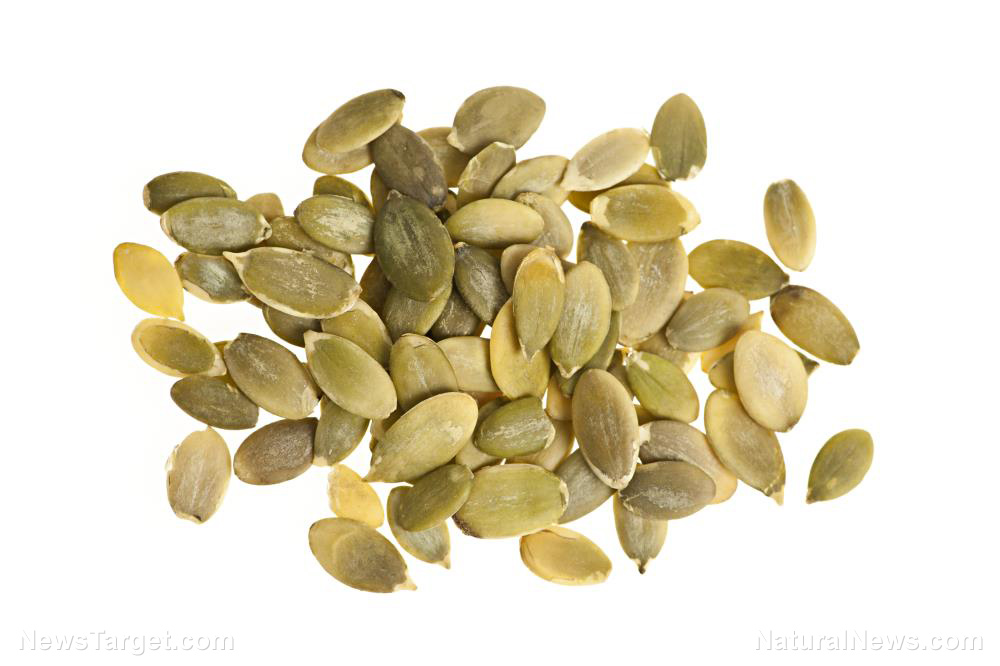Vinegar: The surprising natural remedy for depression symptoms
11/08/2025 / By News Editors

In a world where mental health challenges are on the rise, could the answer to alleviating depression symptoms be sitting in your kitchen pantry? A groundbreaking study suggests that a daily dose of vinegar might just be the unexpected mood booster we’ve been searching for.
(Article republished from GreenMedInfo.com)
Introduction: The Global Burden of Depression
Depression is more than just feeling blue; it’s a pervasive mental health condition that affects millions worldwide. According to the Global Burden of Disease Study, depressive disorders saw a staggering 61% increase between 2009 and 2019, making them the most prevalent and burdensome mental health conditions globally.1 In the United States alone, recent estimates suggest that 18.5% of adults experience depression.2 This widespread prevalence underscores the urgent need for effective, accessible treatments.
The Current Treatment Landscape: Promises and Pitfalls
Conventional treatments for depression typically involve a combination of psychotherapy and antidepressant medications. Yet, antidepressants, particularly selective serotonin reuptake inhibitors (SSRIs), have a wide range of serious side effects, including elevating the risk of suicidal depression, as well as harm towards self and other. Also, conventional SSRIs are predicated on the monoamine hypothesis, which has been heavily criticized for being myopic. Given the host of side effects associated with these medications, ranging from mild to severe, and problems with efficacy, their use should be more carefully regulated and patients informed of their true risks.3
Dr. Carol S. Johnston, lead researcher of the vinegar study, notes, “With this lack of consistency regarding the effectiveness and applicability of medical treatment options for depression, research is warranted to further investigate potential treatment methods.”4
Enter the Vinegar Study: A New Hope?
In this context, a team of researchers from Arizona State University conducted a randomized controlled trial to explore an unconventional approach: daily vinegar ingestion. The study, published in the journal Nutrients, examined the effects of vinegar consumption on depression symptoms in overweight adults over a four-week period.4
Study Methodology:
The researchers recruited 28 non-smoking men and women aged 18-45 with a body mass index (BMI) between 25-40 kg/m². Participants were randomly assigned to one of two groups:
- VIN group: Consumed 30 mL (2 tablespoons) of red wine vinegar diluted in water, twice daily with meals.
- CON group: Took one commercial vinegar pill daily with breakfast.
The VIN group’s daily dosage contained 2.95 g of acetic acid, while the control group’s pill contained a negligible 22.5 mg.
To measure depression symptoms, participants completed two widely validated depression assessments at the beginning and end of the study:
- The Center for Epidemiological Studies Depression (CES-D) questionnaire
- The Patient Health Questionnaire (PHQ-9)
Results: A Spoonful of Vinegar Keeps the Blues Away?
The findings of the study were intriguing. After four weeks:
- PHQ-9 scores fell by 42% in the VIN group, compared to only 18% in the control group (p = 0.036).
- CES-D scores decreased by 26% in the VIN group and 5% in the control group, though this difference was not statistically significant (p = 0.544).
Dr. Johnston and her team noted, “These data provide additional support that daily vinegar ingestion over four weeks can improve self-reported depression symptomology in generally healthy adults.”4
Beyond Symptom Scores: Metabolic Insights
The researchers didn’t stop at measuring depression symptoms. They also conducted metabolomic analyses to explore potential mechanisms behind vinegar’s mood-boosting effects. The results pointed to increased nicotinamide concentrations and upregulation of the NAD+ salvage pathway in the VIN group.
This metabolic shift is significant because previous research has linked nicotinamide and the NAD+ salvage pathway to improved mood and neuroprotection. As the study authors explain, “It is plausible that acetic acid ingestion enhances the NAD+ salvage pathway, elevates sirtuin and PARP activity, and promotes mitochondrial biogenesis and cell integrity in the brain.”4
Implications for Natural Health Approaches
These findings open up exciting possibilities in the realm of natural health approaches to mental wellness. Vinegar, a common household item with a culinary history spanning thousands of years, could potentially serve as a simple, accessible adjunct therapy for managing depression symptoms.
Dr. Johnston emphasizes, “Vinegar is inexpensive, easily incorporated into diet, and widely accessible. Adding vinegar to sauces, dressings, and marinades may achieve a much greater benefit than simply spicing up the diet.”4
It’s important to note, however, that this study was conducted on generally healthy adults, and more research is needed to explore vinegar’s effects on individuals with clinical depression or those already taking antidepressant medications.
The Bigger Picture: Nutrition and Mental Health
The vinegar study is part of a growing body of research investigating the links between nutrition and mental health. As our understanding of the gut-brain axis and the role of inflammation in depression deepens, dietary interventions are gaining recognition as potential therapeutic strategies.
Other studies have explored the mental health benefits of various nutrients and dietary patterns, including:
- Omega-3 fatty acids found in fish oil
- Probiotics and fermented foods
- Mediterranean diet
- Plant-based diets rich in polyphenols
The vinegar study adds another intriguing piece to this nutritional puzzle, suggesting that even simple dietary additions could have profound effects on our mental well-being.
Looking Ahead: Future Research Directions
While the results of this study are promising, they also raise many questions for future research:
- Would vinegar supplementation show similar effects in individuals with diagnosed clinical depression?
- How does vinegar compare to or interact with conventional antidepressant medications?
- Are there long-term benefits or risks associated with daily vinegar consumption for mental health?
- Could other fermented foods or acetic acid-rich products have similar effects?
As Dr. Johnston and her team conclude, “Future research examining the effects of vinegar administration in clinically depressed or at-risk populations, and those on antidepressant medications, is warranted.”4
Conclusion: A Taste of Hope
In a world where mental health challenges are increasingly prevalent, the idea that a common kitchen staple could help alleviate depression symptoms is both surprising and hopeful. While vinegar is not a cure-all and should not replace professional mental health care, this study suggests it could be a valuable addition to our mental wellness toolbox.
Read more at: GreenMedInfo.com
Submit a correction >>
Tagged Under:
acetic acid, alternative medicine, antidepressant, beat depression, food cures, food is medicine, food science, functional food, health science, mental health, mind, natural cures, natural health, natural medicine, naturopathy, remedies, vinegar, Xpost
This article may contain statements that reflect the opinion of the author
RECENT NEWS & ARTICLES
consumerwellness.info is a fact-based public education website published by consumerwellness.info
All content copyright © 2023 by consumerwellness.info
Contact Us with Tips or Corrections
All trademarks, registered trademarks and servicemarks mentioned on this site are the property of their respective owners.




















